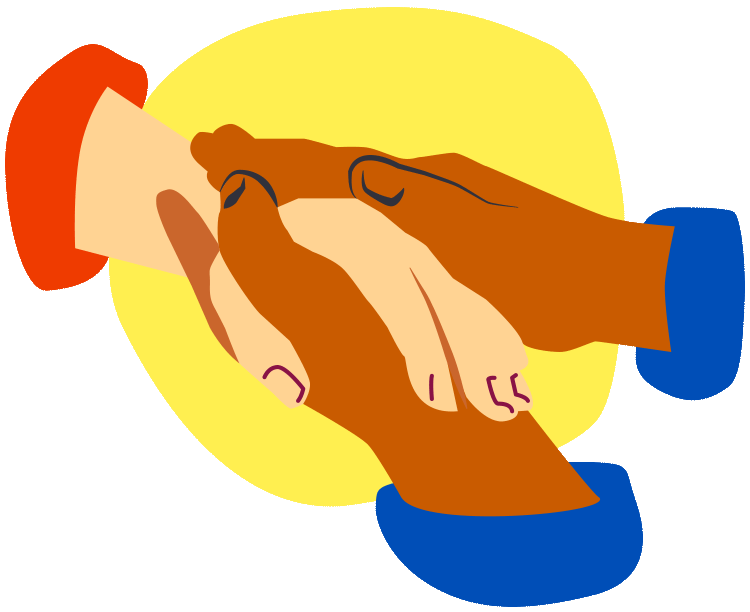What is psychosis?
About psychosis
Psychosis is just one type of mental health problem.
It’s most likely to start when you’re a teenager or a young adult, but it can start when you're older too. It might be helpful to be know what psychosis is and what it isn’t.

The symptoms include things like:
- paranoia, thinking someone’s laughing at you, talking about you, following you or out to get you, thinking that things on the TV, radio or in newspapers relate to you, thinking you or someone else are someone they’re not or having other strange or upsetting thoughts;
- having experiences of hearing, seeing, feeling, smelling, or tasting things that other people don’t.
- having confused thinking or speech that can get jumbled up, so that what you say is hard for other people to understand. You may go off the topic or include words that are out of place.
Psychosis episodes can be very short (e.g. a week) or can last a lot longer.

I was hearing voices. I thought there was someone trying to get me out of the house. I thought I heard my neighbours walking past and I thought they were talking about me. Then they went around the corner and I could still hear them. I looked out and I thought I saw some guy in like a van trying to contact me and I thought well that’s my next-door neighbour or whatever cos I’ve seen him going in the house once. I went outside, just to check, and like a leaf fell from the tree and I thought I heard the leaf like saying something
Ben, aged 20

It can be scary at the time, but you can recover, have a life, a good job, a relationship and a family.
Even psychosis is quite common. Psychosis may just be an extension of anxieties that we all have. It can happen when people are traumatised or extremely stressed by something that has happened to them.
Even psychosis is quite common. It may just be an extension of anxieties that we all have
Most people who have a first episode of psychosis will recover, although some people (about 30%) will continue to have on-going problems.
Quite a few people will have a second episode at some point. Recognising the early signs can reduce the impact of this.
myth buster
Young people have mental illnesses too. In fact, it’s very common. 1 out of every 10 teenagers and 1 in 4 adults will have some form of mental illness. As many as 2-3 people out of 100 will develop psychosis. This is normal!Psychosis is not a diagnosis, but some people who experience it may be given a mental health diagnosis. Sometimes a diagnosis is helpful, as it helps you and others to understand what’s happening. It can also help you to get benefits and support so that you can do what you want to do in life, in your own time.
Several mental health diagnoses do involve unusual distressing (psychosis) experiences. These might include Schizophrenia, Schizo-affective disorder, Bipolar disorder, Delusional Disorder, or Drug-Induced Psychosis.
Although psychosis is not a diagnosis in itself, some people who experience it may be given a mental health diagnosis.
myth buster
Schizophrenia is not a split personality!Different diagnoses are based on slightly different types of unusual experiences, how much they affect your emotions (happiness and sadness), how long they last and how much they affect your life overall.
Sometimes a diagnosis is not helpful, and this may be linked to stigma. If you are affected by psychosis, you may want to discuss with your Early Intervention team, whether a diagnosis will be helpful for you or not.

I think that fear of diagnosis is quite real in anyone
Sean, aged 23
In an acute phase of psychosis you might experience the paranoia and unusual experiences described above, but in a recovery phase you might:
- have similar but less upsetting beliefs and experiences
- have a loss of motivation, energy and interest in things
- have a loss of interest in your appearance;
- stop washing, cooking or looking after yourself;
- struggle to do things that you used to do like working, going to college, or seeing friends or family;
Lots of people don’t really know what it is. They just get the idea of a crazy person cos they don’t really understand it
Aaban, aged 22

- Not feel quite right or not feel how you used to;
- feel flat, depressed, empty, flat, angry about what has happened or worried about things getting worse again;
- feel trapped, embarrassed or like you've failed because of psychosis;
- be withdrawn or quiet;
- have on-going problems with thinking, planning, organising and remembering things.
This stage can be difficult and recovery is a process that can take different amounts of time for different people. Recovery can take weeks or months.
Psychosis is nothing like a badger
Read more: Warning signs
Read stories from people with psychosis here